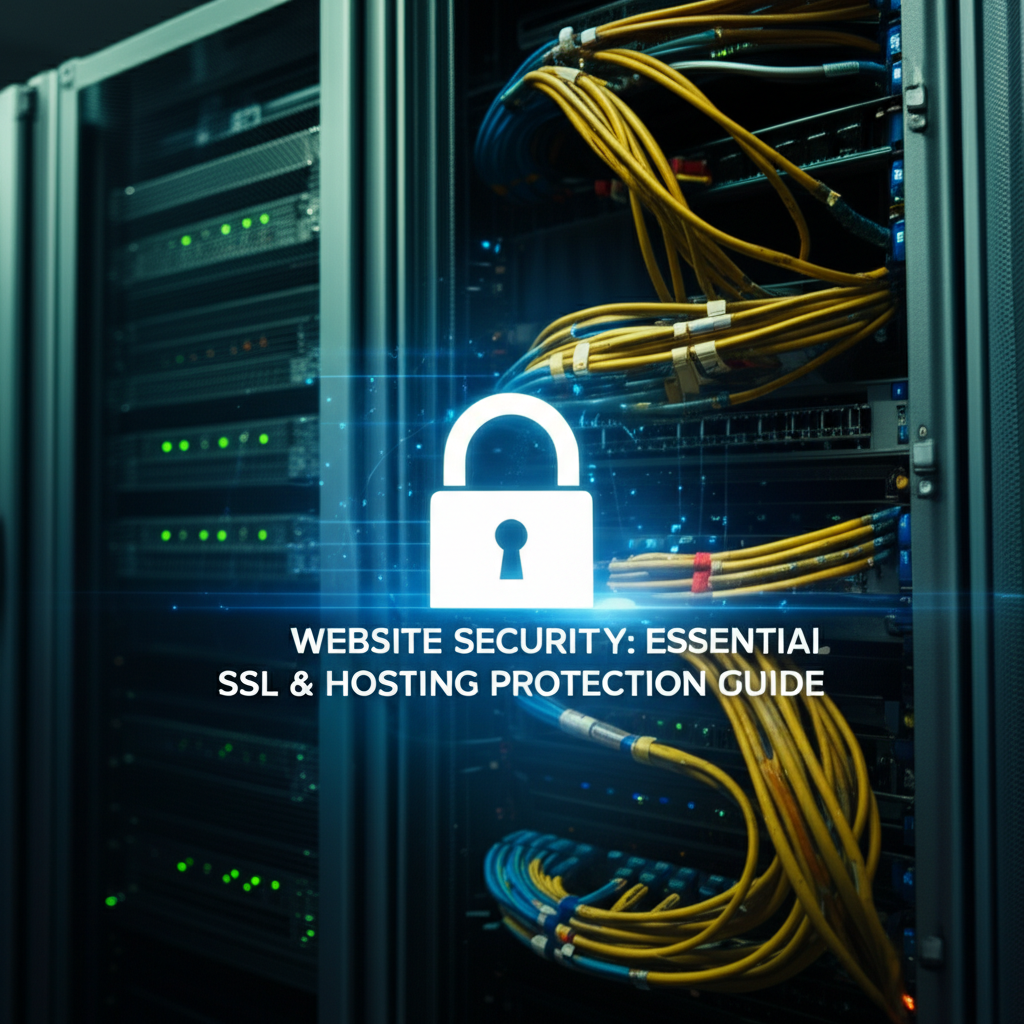- Understanding the Importance of Website Security
- SSL Certificates: The Foundation of Secure Communication
- How SSL Certificates Work
- Types of SSL Certificates
- Hosting Protection: Securing the Server-Side
- Choosing a Secure Hosting Provider
- Implementing Additional Security Measures
- Website Security: A Continuous Effort
Website Security: Essential SSL & Hosting Protection Guide
Website security is paramount in today’s digital landscape. With cyber threats constantly evolving, safeguarding your website and user data is no longer a luxury but a necessity. This comprehensive guide will walk you through the essential aspects of website security, focusing on SSL certificates and robust hosting protection. Understanding these elements and implementing the right strategies can drastically reduce your vulnerability to attacks and build trust with your visitors.
Understanding the Importance of Website Security

In an increasingly interconnected world, websites are susceptible to various malicious activities, including data breaches, malware infections, and denial-of-service attacks. These threats can lead to significant financial losses, reputational damage, and legal repercussions. Robust website security measures act as a shield against these attacks, protecting sensitive user information, maintaining business continuity, and fostering trust with your audience. A secure website instills confidence in visitors, encouraging them to engage, transact, and return.
SSL Certificates: The Foundation of Secure Communication
SSL (Secure Sockets Layer), now more accurately referred to as TLS (Transport Layer Security), certificates are the cornerstone of secure online communication. They encrypt the data transmitted between a user’s browser and your website server, preventing unauthorized access to sensitive information like login credentials, credit card details, and personal data.
How SSL Certificates Work
SSL certificates work by establishing an encrypted connection using cryptographic keys. When a user accesses a website secured with an SSL certificate, their browser verifies the certificate’s authenticity and validity. Once verified, a secure session is established, and all data exchanged between the browser and the server is encrypted. This encryption makes it extremely difficult for hackers to intercept and decipher the information.
Types of SSL Certificates
Several types of SSL certificates cater to different needs and budgets:
Domain Validated (DV) SSL Certificates: These certificates offer basic encryption and are the quickest and most affordable option. They verify ownership of the domain but don’t provide extensive organizational information. Ideal for blogs, personal websites, and small businesses.
Organization Validated (OV) SSL Certificates: OV certificates provide a higher level of assurance as they verify the organization’s identity. This added validation builds greater trust with visitors. Suitable for e-commerce websites, businesses handling sensitive data, and organizations seeking enhanced credibility.
Extended Validation (EV) SSL Certificates: Offering the highest level of authentication, EV certificates display the organization’s name in the browser’s address bar, providing immediate visual reassurance to users. This visual cue significantly boosts user trust and can lead to increased conversions. Recommended for financial institutions, large corporations, and any website handling highly sensitive data.
Hosting Protection: Securing the Server-Side
While SSL certificates protect data in transit, robust hosting protection safeguards your website at the server level. This includes measures to prevent malware infections, defend against DDoS attacks, and ensure data integrity.
Choosing a Secure Hosting Provider
Selecting a secure hosting provider is crucial for maintaining a resilient online presence. Look for providers offering the following security features:
Firewall Protection: A strong firewall acts as the first line of defense, filtering incoming traffic and blocking malicious requests.
Malware Scanning and Removal: Regular malware scanning and removal services are essential for identifying and eliminating threats before they can compromise your website.
Intrusion Detection and Prevention Systems (IDPS): IDPS actively monitor network traffic for suspicious activities and automatically take action to prevent attacks.
DDoS Protection: DDoS attacks can cripple your website by flooding it with traffic. A reliable hosting provider should offer robust DDoS mitigation strategies.
Regular Backups: Routine backups ensure that your website data can be restored quickly in case of a disaster or data breach.
Implementing Additional Security Measures
Beyond relying on your hosting provider, implementing additional security measures strengthens your website’s defenses:
Strong Passwords and Two-Factor Authentication: Enforce strong password policies and implement two-factor authentication for all user accounts, including administrators.
Regular Software Updates: Keep all software, including your content management system (CMS), plugins, and themes, up-to-date to patch security vulnerabilities.
Website Security Monitoring: Utilize website security monitoring tools to detect vulnerabilities and suspicious activities in real-time.
Security Audits: Conduct periodic security audits to identify potential weaknesses and ensure your security measures are effective.
Website Security: A Continuous Effort
Maintaining robust website security is not a one-time task but an ongoing process. As cyber threats evolve, so too should your security strategies. By staying informed about the latest security best practices, implementing robust measures, and remaining vigilant, you can effectively protect your website, your users, and your business from the ever-present dangers of the online world. Investing in website security is an investment in the future of your online presence.











Leave a Reply